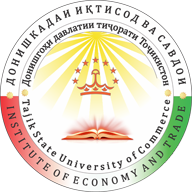Internationalization of education and research work
Main strategic goals.
The activity of IET TSUC in the sphere of internationalization is based on implementing into activity of the institute the principles of European higher education and provisions of international agreements and documents: Communiqué of the European Ministers of Education “Maximizing our potential: consolidating the European Higher Education Area”, the Mobility Strategy for the European Higher Education Area up to 2020 “Mobility for improving education”, Joint statement of the participants of the III Bologna Political Forum “Beyond the Bologna Process: creation and interaction of national, regional and global spaces of higher education “, adopted within the framework of VIII Conference the Ministers of Education of the Bologna Process countries and the III Bologna Political Forum (26-27 April 2012 in Bucharest, Romania).
Target countries for cooperation in the framework of international mobility projects and projects of capacity-building are:
Spain
Italy
Germany
Sweden
Switzerland
Poland
Czech Republic
Latvia
Lithuania
Estonia
Croatia
Hungary
Romania
Bulgaria
Portugal
Cyprus
Turkey
Being an innovation oriented institute, IET TSUC implements programs of scientific and academic cooperation with 54 higher educational institutions, organizations and research institutes from 20 countries, including 6 from abroad and 4 from the near abroad.
An important direction of the institute’s activity is the academic mobility of students. In 2014, more than 10 students, master and doctoral students received training and internships abroad under the academic mobility program.
In the system of international relations the university participates in various student exchange programs: DAAD, programs of the Embassies of France, Turkey, China, India, Spain, etc. In the framework of strategic task of university’s integration into international educational space, the TEMPUS IV project is realized.
The institute pays great attention to attraction of international scientists for research and lecturing, master classes and practical classes. Annually professors and researches from the USA, Sweden, Russia, Ukraine and other countries are invited to the institute.
Analysis of main problems
The main problems in the field of internationalization include the following: insufficient harmonization of educational programs and individual learning opportunities, immature language environment and knowledge of students and teaching staff the professional foreign language, weak consideration of the professional competencies of international labor market in educational programs, weak connection with international organizations and enterprises operating outside the Republic of Tajikistan.
Assessment of main external and internal factors
External factors: national and institutional model of administrating universities is unorganized with international practice, insufficient funding of academic mobility programs by enterprises and business partners.
Internal factors: the need for serious integration into the multicultural and international environment and the psychological preparation of students, an inadequate system for advancing the results of scientists’ research in the international scientific and academic environment.

